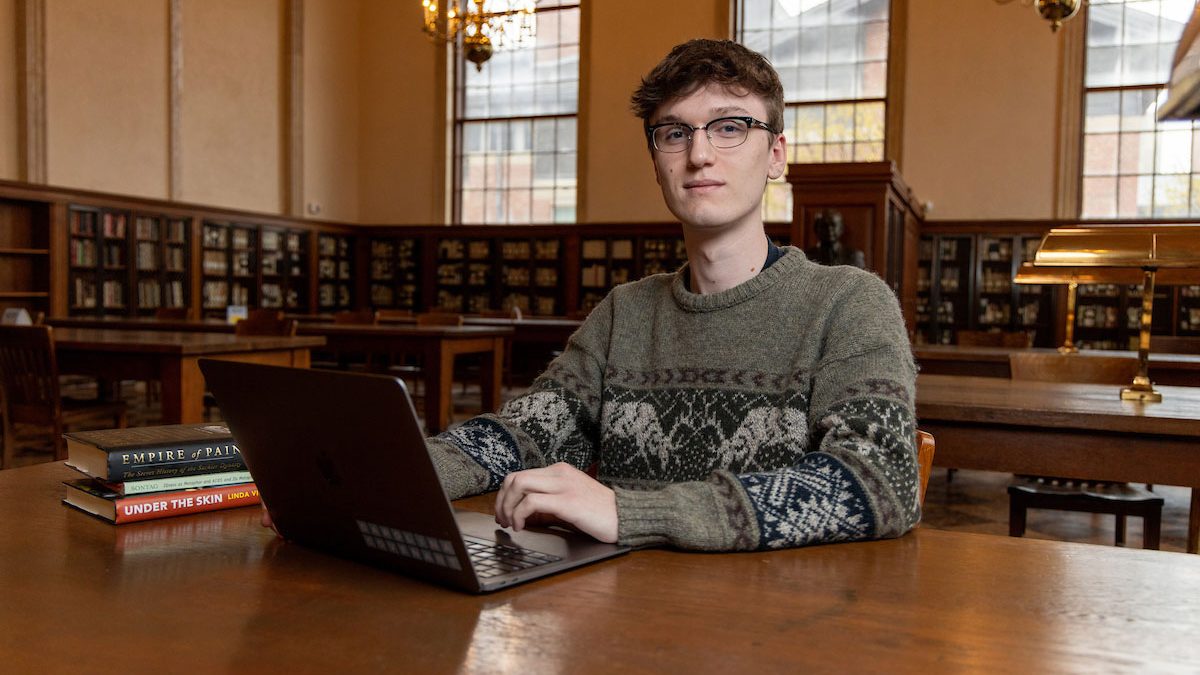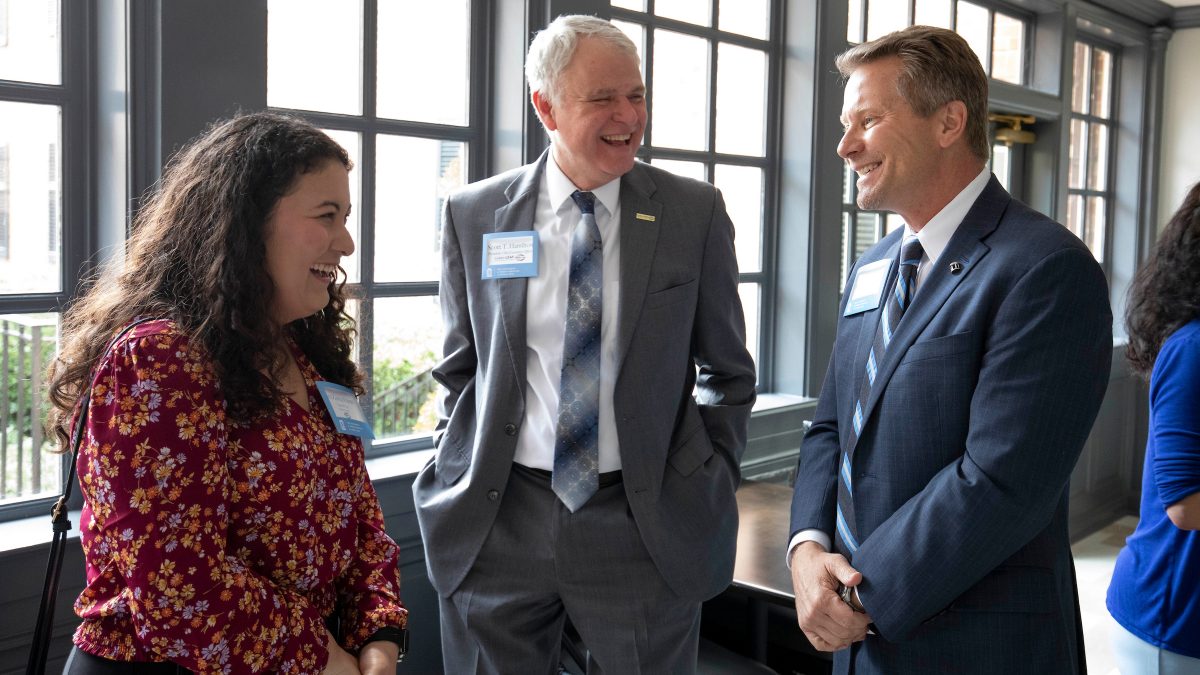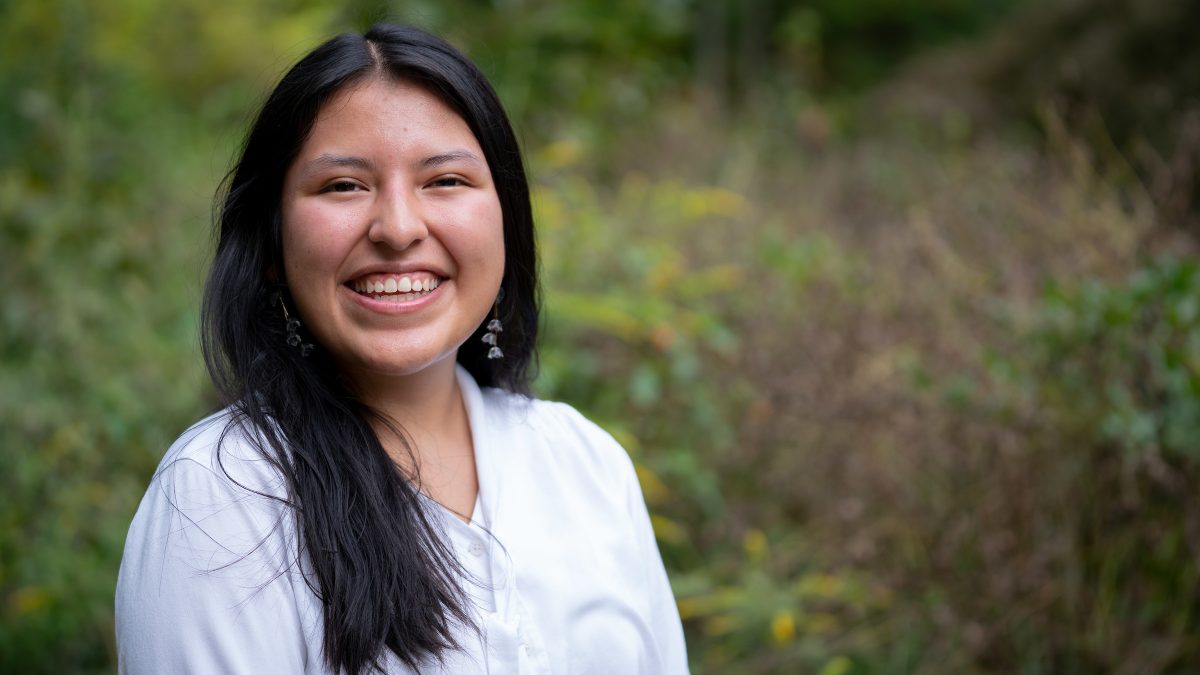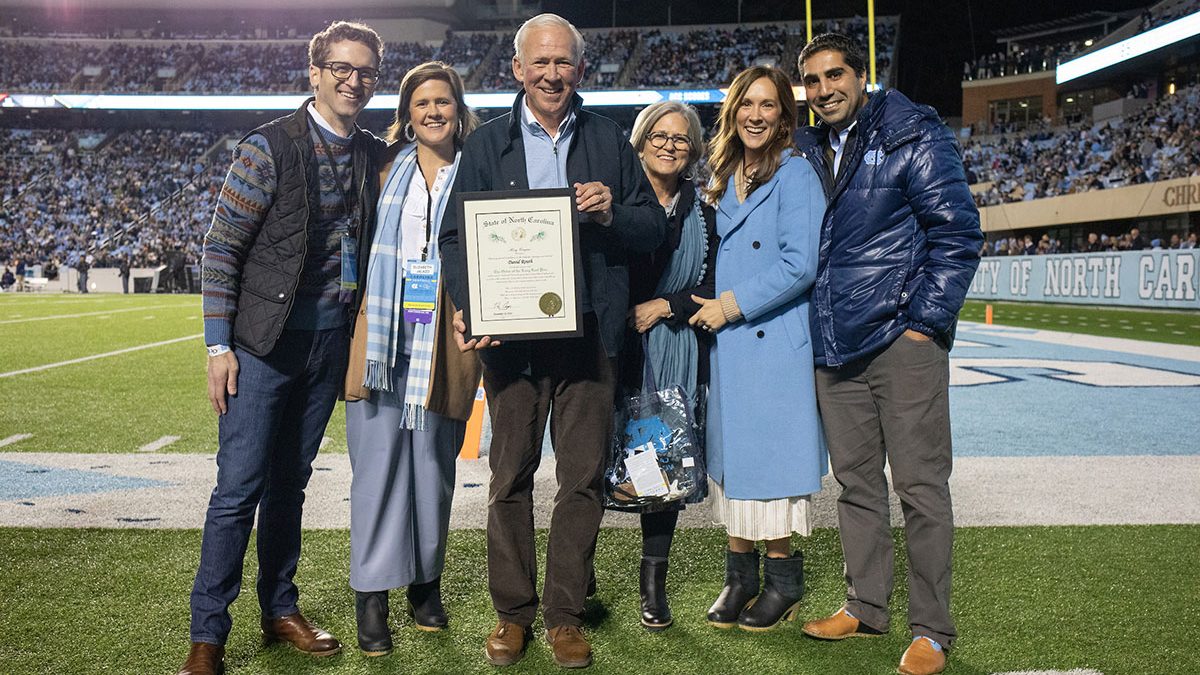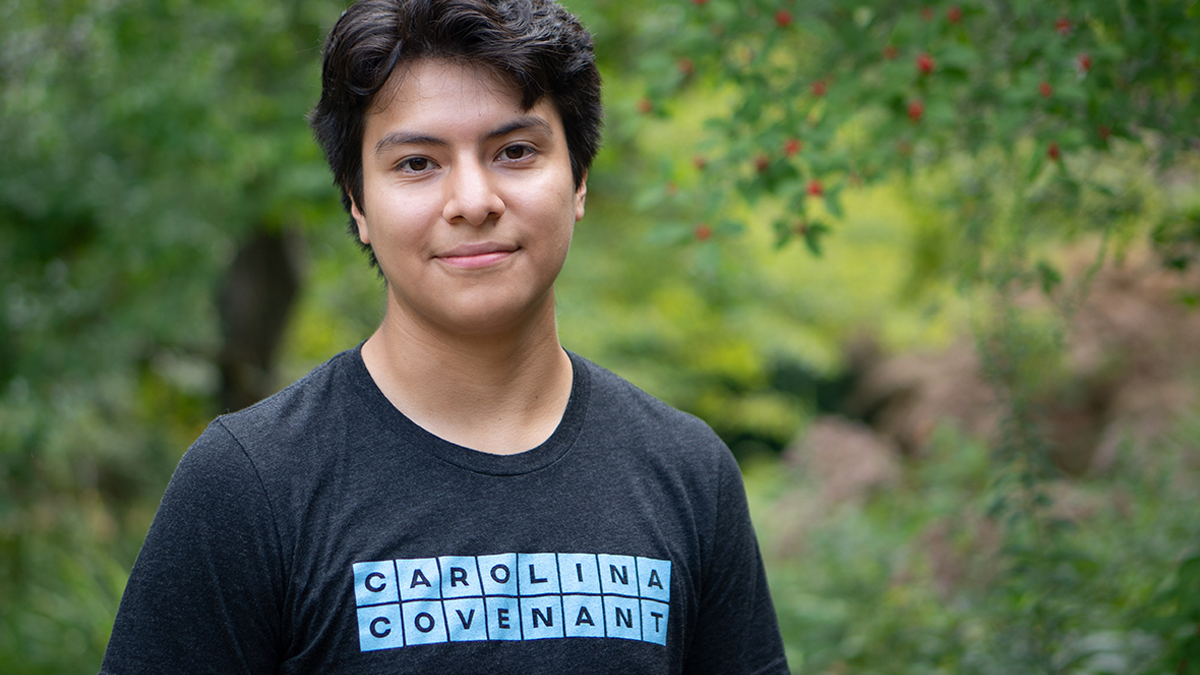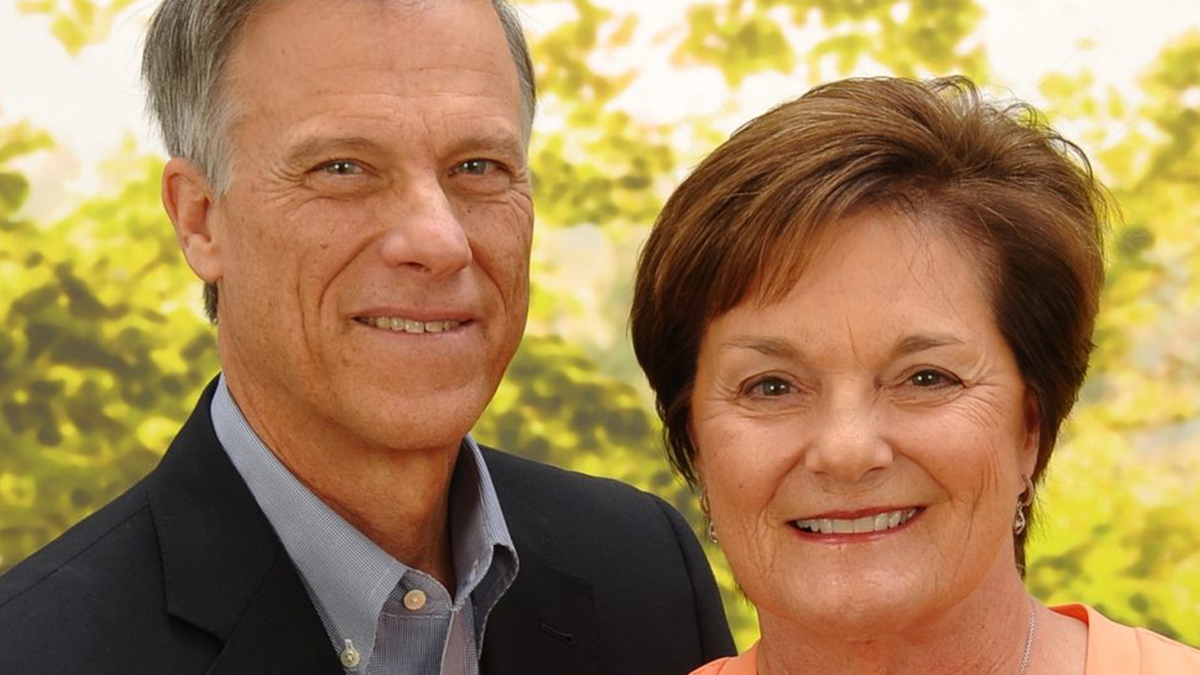Discovering the Answers
Published on September 22, 2021The Chancellor’s Science Scholars program has helped Madyson Barber ’22 as she contributes to the discovery of new planets in distant solar systems.
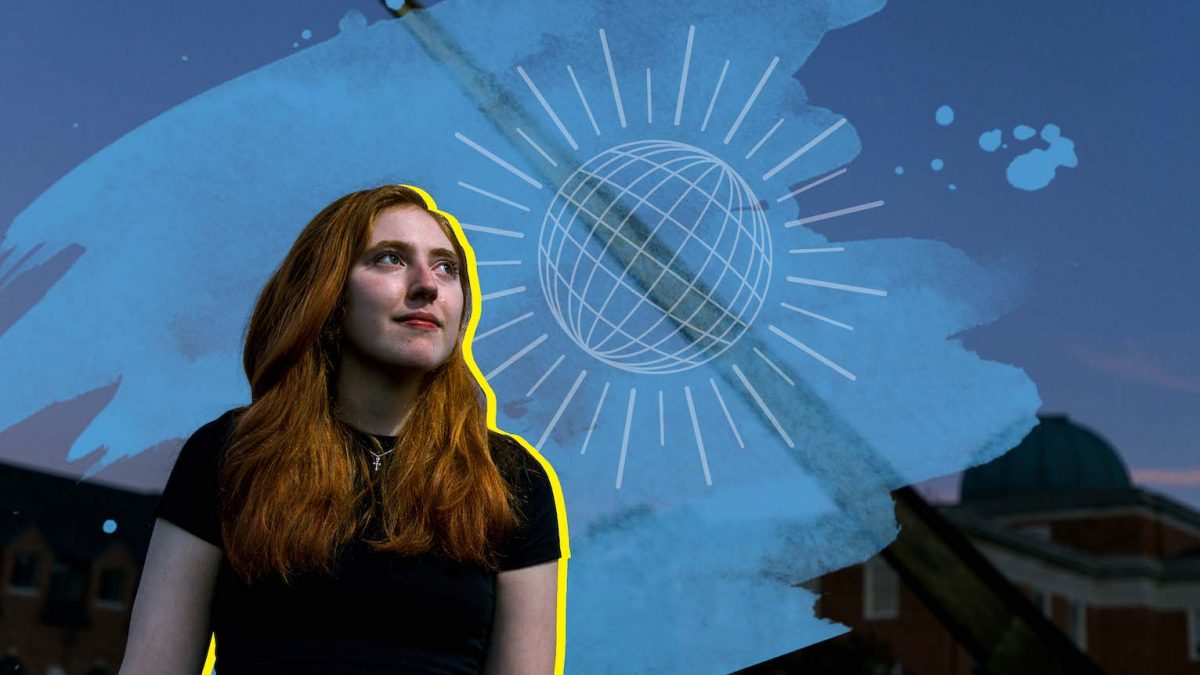
The Chancellor’s Science Scholars program has helped Madyson Barber ’22 as she contributes to the discovery of new planets in distant solar systems.
Madyson Barber’s mom likes to joke that by the time she returned to work from parental leave, her daughter could already count to 10. Though this is perhaps an exaggeration, it is absolutely true that Barber flashed a natural aptitude for math and science from a young age. In high school, she wrote an extended essay for the International Baccalaureate Diploma Program on the viability of asteroid deflection methods.
“That was the course that really got me interested in astrophysics,” Barber said. “I thought that I would probably study math or engineering, but I guess I just became fascinated with space and realized that was going to be my direction.”
Barber’s high school work was so superlative that she applied for and received a scholarship from the Chancellor’sOpens in new window Science ScholarsOpens in new window program, a scholarship, training and leadership program to attract talented high school students to Carolina. For a student who grew up wanting to go to UNC-Chapel Hill, the scholarship was a dream come true.
“It meant that I got into my first school and had a way to pay for it, along with all the other help that comes with being a Chancellor’s Science Scholar,” Barber said.
A Phi Beta Kappa inductee and an NC Space GrantOpens in new window Undergraduate Research Scholar, Barber has worked with Assistant Professor Andrew Mann on research to discover and study young planets outside of our solar system. Barber, an astrophysics and computer science major, analyzes data collected from thousands of stars to help find those that are likely to have orbiting planets.
“It can be difficult for undergraduates when there is no answer in the back of the book for the research we do – we’re the ones discovering the answers,” Mann said. “Madyson is one of the few who has those investigative capabilities that research requires, and she had that very early on.”
Barber credits the Chancellor’s Science Scholars program for helping her excel and feel more prepared for challenges like contributing to academic research.
“CSS has been an incredible support system,” Barber said. “It’s helped me have friends I can talk to about the general STEM experience, and connected me with other physics majors I could talk to. There are a lot of people I feel like I can count on for help.”
Still, despite the support, Barber described being a woman in STEM and especially in astrophysics as “scary.”
“I was not scared of the subject, but of the dynamic of the classroom,” Barber said. “You can find yourself in a classroom and the boys sit in the front and ask the questions, and you feel intimidated and don’t ask for the help you might need.”
That feeling led Barber to become a member of Visibility in Physics, an organization that provides resources, advice and encouragement to underrepresented groups in physics.
“Physics can be very challenging for just about everybody,” Barber said. “It helps so much not to have to pretend that you aren’t confused, and to just sit there and be confused with somebody. It helps you overcome that fear.”
Barber, who plans to pursue a graduate degree in physics and perhaps work in academia or at NASA, hopes the path she is taking, and helping others take, will lead to more opportunities for people who are underrepresented in both physics and across STEM subjects.
“I know at some point, everyone in CSS has felt discouraged or struggled with their subject,” Barber said. “We had the help that we needed, and that opened my eyes. I want to make sure everyone feels supported.”
